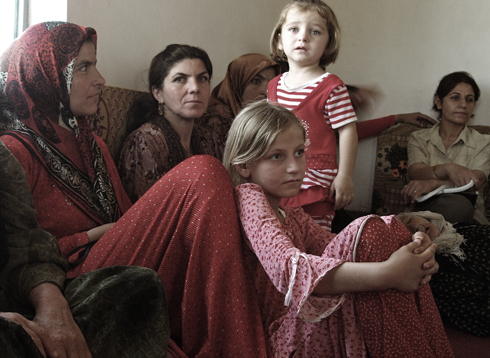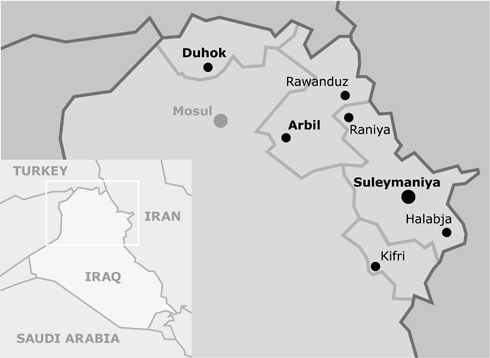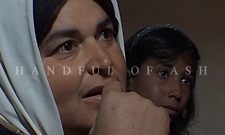
Female Genital Mutilation:
It's a crime not culture
FGM stands for »Female Genital Mutilation«, sometimes called female circumcision or female genital cutting.
FGM, as practiced in Kurdistan, is the cutting of the clitoris of girls in order to curb their sexual desire and preserve their so-called sexual honor before marriage.
The practice bears dreadful costs: some girls bleed to death or die of infection. Most are traumatized. Those who survive can suffer adverse health effects during marriage and pregnancy. The suffering of women and girls is enclosed by a wall of silence.
The mutilation is usually done to young girls aged 4 to 12 years. The operation is carried out in secret. For the girl, it is a traumatizing experience to be handed over by her own mother to the midwife for this operation.
FGM can kill
Usually, a female member of the family, a neighbour or a midwife operates the girl. The operation is done without anesthetics. Instruments are usually not sterile. The midwife cuts the clitoris and sometimes parts of the labia with a razor or a knife.
Then, she covers the bleeding wound with ash. To stop the bleeding, girls are sometimes forced to sit onto a bucket filled with icy water. Girls died as a result of this operation and many suffer their whole life from the psychological and medical consequences.
FGM is widespread in Iraqi Kurdistan
In 2004, members of female-led mobile teams run by the relief organization WADI reported the existence of FGM in several villages of the Garmyan area, south of Suleymaniah. A subsequent study revealed that about 60% were affected.
 Interactive map: FGM rates in kurdish regions of Iraq
Interactive map: FGM rates in kurdish regions of Iraq
In 2010, WADI published a comprehensive scientific study, which analyzes the rates of FGM and its indicators. The FGM rate of 72.7% was even higher than preliminary findings could predict. Urban areas are turned out to be as affected as the countryside. Information on the difference provinces of Iraqi Kurdistan is available through the interactive map. The province of Duhok was not included in the survey. There is some evidence that FGM is not common in this northern region (below 10%).
In the study, there is evidence for a trend of general decline of FGM. It seems that nowadays less than 50% of the young girls are being mutilated.
The findings for Garmyan governorate are particularly problematic in several respects: here we find the highest FGM rates, the lowest levels of awareness and education, the highest illiteracy rates, and the most severe form of mutilation: not only the clitoris but also the labia are being cut. The percentage of women in this region who defend the FGM practice is much higher than in other parts of Kurdistan. The study also shows a strong correlation between a lack of education and FGM. The findings also indicate that FGM is a Sunni Muslim practice, even though occasionally some individuals from other religious communities join the “ritual”.
Lack of information assists FGM
Like everything related to sexuality, FGM is a taboo. Women suffer silently from the operation and local communities often do not consider FGM a harmful practice. Raising the awareness inside the communities and especially among the women themselves is crucial.
Lack of information is one of the many reasons for women to go on with FGM. Many believe it to be an inevitable operation for the sake of hygienic; others have been told that FGM is obligatory for Muslims.
FGM is violence against women (and girls) by women. Men are barely involved. Many do not know anything about the “ritual”. Nevertheless, one reason for the persistence of FGM is that women and girls are widely regarded as objects and as property possessed by their male relatives. FGM is a means to increase the value of a woman. Self-conscious mothers and girls who know their rights and regard themselves as subjects with individual needs and feelings are not such easy victims for mutilation and violence.







 Clinton: 'Cultural Tradition' is No Excuse for Female Genital Mutilation
Clinton: 'Cultural Tradition' is No Excuse for Female Genital Mutilation


